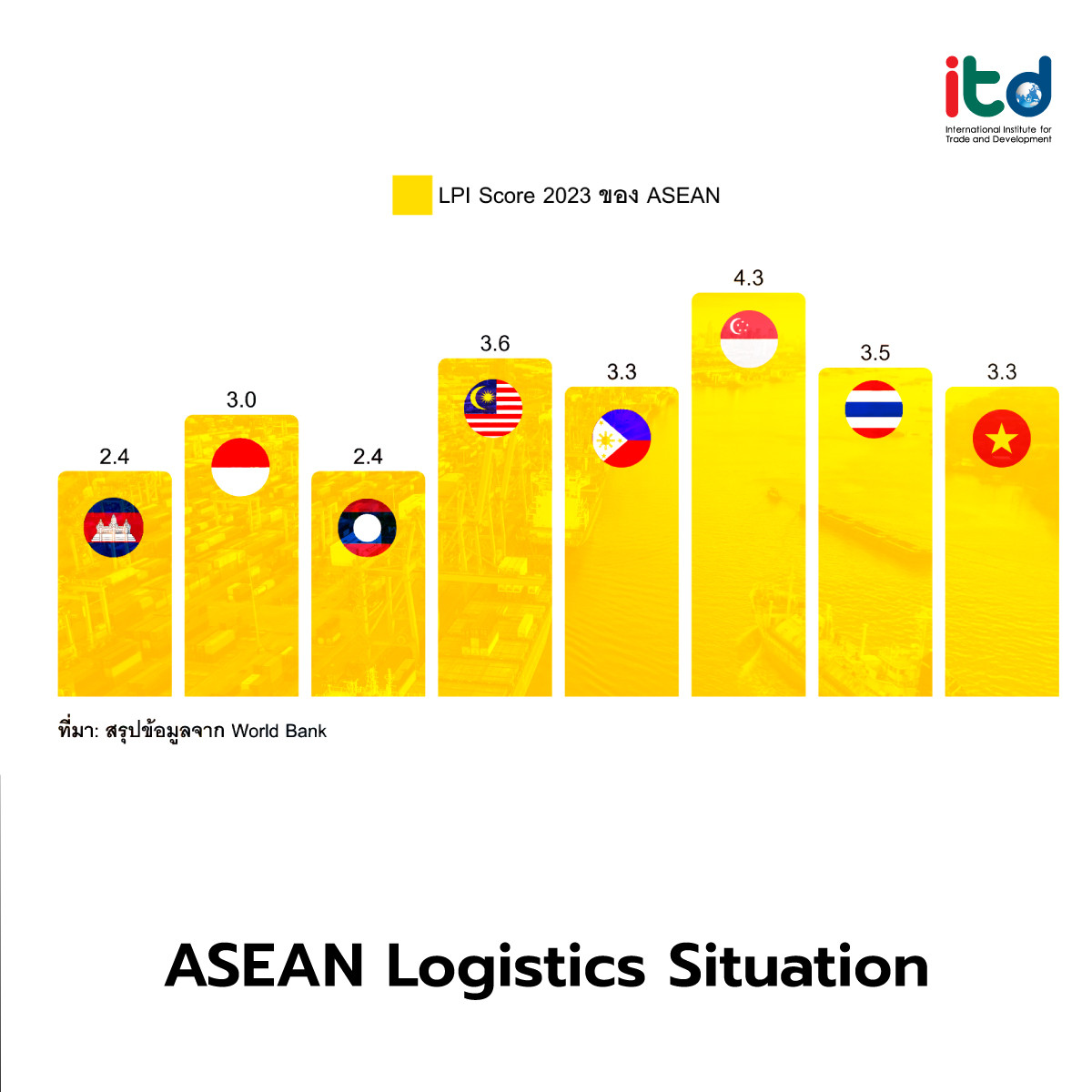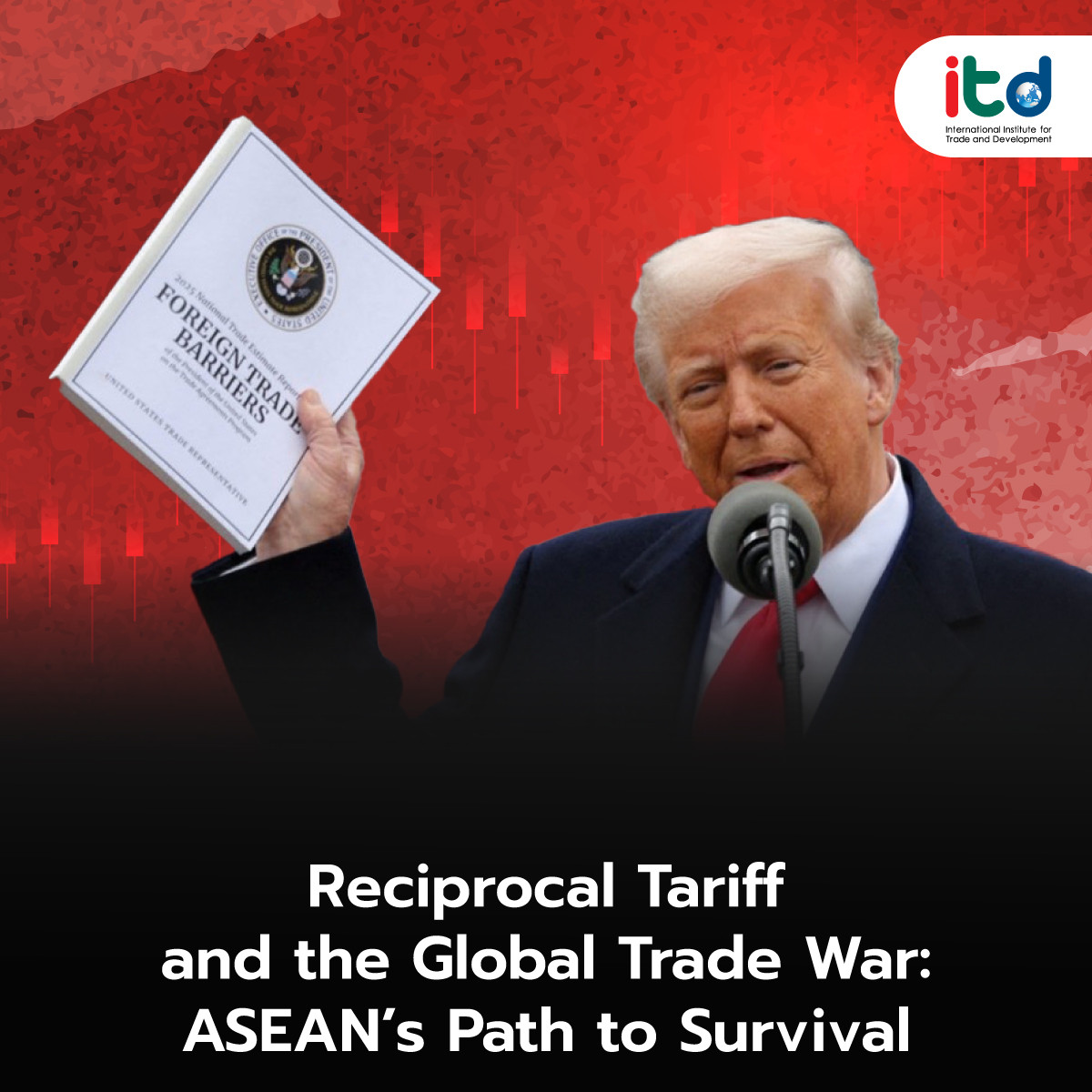About Documents
The development of logistics systems in ASEAN is a crucial factor in enhancing the competitiveness of member countries in the global trade arena. This is especially true during 2023-2024, a period marked by rapid changes in global economic and technological trends. Similarly, ASEAN has been actively improving its logistics infrastructure, including land, sea, and air transportation, while integrating technology and innovation into logistics management. These efforts aim to connect regional supply chains, boost global competitiveness, reduce business operation costs, and significantly promote economic growth in the region.
The World Bank has established the Logistics Performance Index (LPI) as a tool to evaluate opportunities and challenges faced by countries in this field. The LPI is a global index developed by the World Bank to highlight logistics efficiency challenges and opportunities, providing recommendations for improvement. It has two primary methodologies: surveys of international logistics experts, such as transport and logistics providers, which offer qualitative insights into the “friendliness” of partner countries’ logistics systems, and empirical data from supply chain tracking, including maritime, air, and postal transportation.
The LPI evaluates several dimensions, such as customs score, infrastructure quality, international shipping capabilities, logistics system quality, timeliness, and tracking and tracing ability. These indicators reflect the speed and efficiency of international trade.
According to the 2023 LPI rankings, Singapore ranked first globally in logistics efficiency, surpassing the United States, China, and EU nations. Among ASEAN member states, Malaysia ranked 31st, Thailand 37th, the Philippines 47th, Vietnam 50th, Indonesia 63rd, Cambodia 116th, and Laos 120th (while data for Brunei and Myanmar were unavailable).
The 2023 LPI results underscore two key insights into ASEAN logistics. First, Singapore’s top ranking highlights ASEAN’s strategic significance in global trade, particularly through key trade routes such as the Strait of Malacca, connecting East and West. Singapore serves as a model for leveraging innovation and technology in logistics management and streamlining import-export regulations.
Second, the diverse rankings among ASEAN members emphasize structural challenges, particularly the developmental gaps within the region. Addressing these disparities is critical for strengthening the region’s logistics ecosystem.
The LPI is one of several indicators impacting the ease of doing business. Strong logistics infrastructure readiness can attract international trade and investment. Therefore, ASEAN member states must prioritize infrastructure development, logistics systems, and facilitation of international trade processes.
According to the ASEAN Statistical Yearbook 2023, over the past few years, all 10 ASEAN members have made progress in expanding transportation networks, including roads, railways, ports, and airports. Although the pace of development varies, these advancements underline the importance of improving logistics efficiency and standards as a key driver of economic growth. The pressing challenge for ASEAN lies in achieving seamless integration of logistics systems to enhance connectivity and sustain the region’s supply chain stability in a sustainable manner.
Author:
Mr. Khobtham Neelapaichit
Senior Researcher
International Institute for Trade and Development (Public Organization)
www.itd.or.th
Publication: Bangkok BIZ Newspaper
Section: First Section/World Beat
Volume: 37 Issue: 12786
Date: Wednesday, Dec. 4, 2024
Page: 8 (left)
Column: “Asean Insight”






